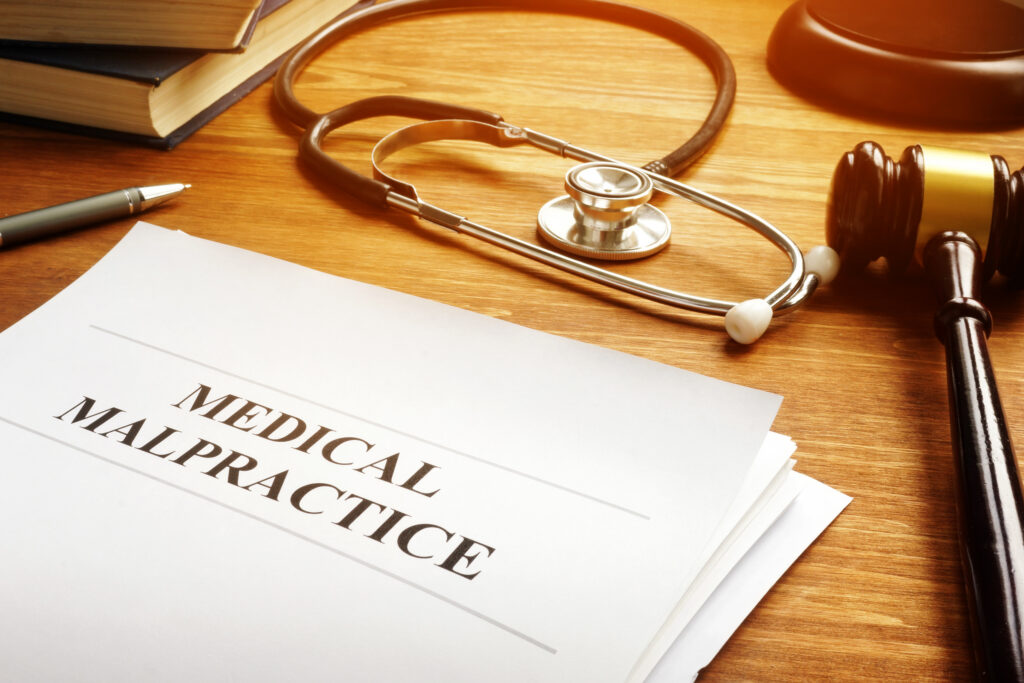Medical errors are a leading cause of preventable harm, often resulting in severe injuries, long-term disabilities, or even death. If you or a loved one has suffered due to hospital negligence in Pennsylvania, you may have legal grounds to file a medical malpractice lawsuit.
However, pursuing a claim requires a solid understanding of Pennsylvania’s malpractice laws, the statute of limitations, and how to prove medical negligence.
This guide provides a comprehensive overview of the hospital malpractice lawsuit process in Pennsylvania, including the types of hospital negligence, how to prove malpractice, the damages you can recover, and why hiring an experienced lawyer is essential.
What Is Medical Malpractice in Pennsylvania?
Understanding Duty of Care and Breach of Duty
Medical malpractice occurs when a healthcare provider, including hospitals, fails to meet the accepted standard of care, resulting in harm to the patient. The standard of care is defined as the level of treatment that a reasonably competent medical professional would provide under similar circumstances.
To have a valid medical malpractice claim in Pennsylvania, four key elements must be proven:
- Duty of Care – The hospital was responsible for providing appropriate medical treatment.
- Breach of Duty – The hospital failed to meet the expected standard of care.
- Causation – The breach directly caused harm or worsened the patient’s condition.
- Damages – The patient suffered financial, physical, or emotional harm.
Pennsylvania law requires that malpractice cases be supported by expert medical testimony to establish that the hospital’s actions deviated from the standard of care.
Common Types of Hospital Malpractice Cases in Pennsylvania
Surgical Errors
Surgical mistakes are among the most serious forms of medical malpractice. Some common errors include performing surgery on the wrong body part, leaving surgical instruments inside the patient, and making anesthesia-related mistakes that can lead to brain damage or death.
Misdiagnosis and Delayed Diagnosis
A failure to properly diagnose a serious condition, such as cancer or a stroke, can have life-threatening consequences. If a misdiagnosis leads to delayed or incorrect treatment, the patient’s condition can worsen significantly.
Medication Errors
Prescription mistakes happen when a patient receives the wrong medication, the incorrect dosage, or a dangerous combination of drugs. These errors can cause severe allergic reactions, internal damage, or even death.
Birth Injuries
Negligence during childbirth can result in devastating injuries for both the mother and the baby. Conditions such as cerebral palsy or brachial plexus injuries may occur due to improper fetal monitoring or excessive force used during delivery.
Failure to Treat
Sometimes, hospitals fail to provide the necessary care, either by discharging a patient too soon or ignoring test results that indicate a serious medical issue. When timely treatment is not provided, a patient’s health can deteriorate rapidly.
Hospital-Acquired Infections
Unsanitary conditions, poor sterilization procedures, or lack of infection control can result in serious infections such as sepsis or MRSA. Hospitals have a duty to maintain clean and safe environments for their patients.
How to Prove Medical Negligence in Pennsylvania
Expert Testimony Requirement
Pennsylvania law requires an affidavit of merit, which means a medical expert must review the case and confirm that malpractice likely occurred. Without this expert testimony, the lawsuit cannot proceed.
Medical Records as Evidence
Medical records are crucial in proving negligence. These documents include patient charts, lab test results, and doctor’s notes that can highlight mistakes or deviations from standard procedures.
Witness Statements
Statements from hospital staff, other healthcare providers, or even fellow patients can strengthen a malpractice claim. If a witness observed negligence or an error, their testimony can be used as evidence in court.
Hospital Policies and Procedures
Hospitals must follow strict patient safety protocols. If a hospital fails to follow its own procedures, this can be used as evidence to establish negligence.
Step-by-Step Guide to Filing a Medical Malpractice Lawsuit in Pennsylvania
Step 1: Consult a Medical Malpractice Lawyer
A malpractice lawyer will evaluate the case, help gather necessary evidence, and explain legal options. Given the complexity of hospital negligence cases, hiring an experienced attorney is highly recommended.
Step 2: Obtain Medical Records & Expert Opinions
Gathering complete medical records is essential. These documents will be reviewed by a medical expert to determine if malpractice occurred.
Step 3: File a Certificate of Merit
In Pennsylvania, a Certificate of Merit is required. This legal document confirms that an expert has reviewed the case and believes malpractice took place.
Step 4: Negotiate With the Hospital or Insurance Provider
Many malpractice cases are resolved through settlements rather than court trials. A lawyer can negotiate a fair settlement with the hospital or its insurance provider.
Step 5: File a Lawsuit Before the Deadline
If settlement negotiations fail, a lawsuit will be filed. The case then moves to court for trial, where a judge or jury will determine the outcome.
Pennsylvania Medical Malpractice Statute of Limitations
How Long Do You Have to File a Malpractice Claim?
The statute of limitations sets the legal deadline for filing a lawsuit. In Pennsylvania, medical malpractice claims must be filed within two years of the injury. However, if the injury was not immediately discovered, the two-year countdown begins from the date the patient became aware of the malpractice.
For minors, the law allows malpractice claims to be filed until the child’s 20th birthday. If a lawsuit is not filed within the required timeframe, the patient may lose the right to pursue compensation.
Damages You Can Recover in a Hospital Negligence Case
Economic Damages
Victims can recover medical expenses, lost wages, and future healthcare costs resulting from the malpractice.
Non-Economic Damages
Compensation is also available for pain and suffering, emotional distress, and loss of quality of life.
Punitive Damages
In extreme cases of negligence, punitive damages may be awarded to punish the hospital and deter similar misconduct in the future.
Choosing the Best Medical Malpractice Lawyer in Pennsylvania
What to Look for in a Lawyer
A qualified malpractice attorney greatly increases the chances of success. Patients should look for lawyers with proven experience in medical malpractice cases, a track record of settlements and trial wins, and a contingency-based fee structure, meaning they only get paid if the case is successful.
Frequently Asked Questions
Can I sue a hospital without a lawyer in Pennsylvania?
Yes, you technically can sue a hospital on your own, but medical malpractice cases are highly complex. They require expert testimony, extensive legal knowledge, and a thorough understanding of Pennsylvania malpractice laws. Without an experienced attorney, you may struggle to gather the necessary evidence and navigate the legal system. A lawyer significantly increases your chances of winning your case and securing the maximum compensation.
How much does a medical malpractice lawyer in Pennsylvania cost?
Most medical malpractice lawyers in Pennsylvania work on a contingency fee basis, meaning you don’t have to pay anything upfront. Instead, your attorney only gets paid if you win your case. Their fee is typically a percentage of your settlement or court award, which makes legal representation more accessible for victims of medical malpractice. Always discuss fee arrangements during your initial consultation to understand what to expect.
What if I signed a waiver at the hospital?
Signing a waiver does not necessarily mean you give up your right to sue. Hospitals often have patients sign general consent forms before treatment, but these do not protect them from gross negligence or medical malpractice. If a hospital or doctor made a preventable error that caused harm, you may still have a valid claim. A malpractice attorney can review your case and determine whether the waiver has any legal impact.
How long do I have to file a medical malpractice lawsuit in Pennsylvania?
In Pennsylvania, the statute of limitations for medical malpractice claims is generally two years from the date of injury. However, if the injury was not immediately discovered, the two-year period begins when the patient becomes aware of the malpractice. For minors, medical malpractice claims can be filed until the child’s 20th birthday. Failing to file within the statute of limitations means you may lose your right to seek compensation.
What damages can I recover in a hospital negligence lawsuit?
Victims of medical malpractice in Pennsylvania can seek compensation for a variety of damages. Economic damages include medical expenses, lost wages, and the cost of future medical care. Non-economic damages cover pain and suffering, emotional distress, and loss of quality of life. In cases involving extreme negligence, punitive damages may also be awarded to punish the hospital and deter similar misconduct in the future.
Contact Purchase, George & Murphey, P.C. Today
If you or a loved one has suffered due to hospital negligence in Pennsylvania, taking legal action can help you recover compensation for medical expenses, lost wages, and emotional suffering. However, malpractice lawsuits are time-sensitive, and Pennsylvania’s statute of limitations limits how long you have to file a claim.
Contact Purchase, George & Murphey, P.C. today for a free consultation and protect your rights.














